Apparently, spring is my favorite season in Berlin. In general, fall is my favorite season, but I was traveling outside of Europe for several weeks in September 2018 and October 2019 so I haven’t spent as much time here during the fall. Conversely, this is my third spring spent entirely in Berlin, and… I’m pretty disappointed to be spending it inside.
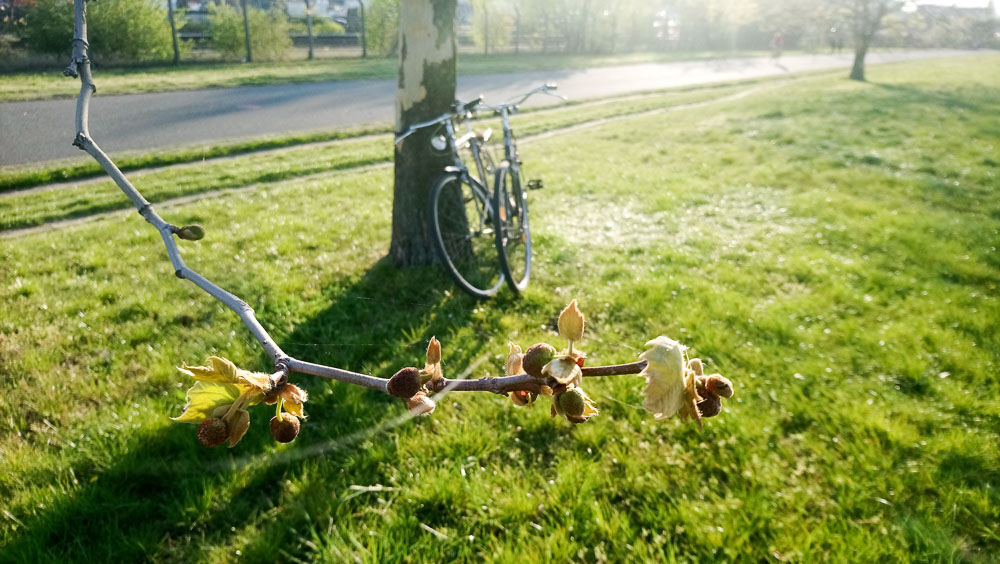
Obviously, I’m happy to protect myself and others by staying home. On the list of issues caused by this global pandemic, missing spring is a minor inconvenience. But it’s my minor inconvenience, so I decided to acknowledge it with a blog post about something that makes spring in Germany special:
Asparagus. Or, in German: der Spargel.
We moved to Berlin in late March of 2018 and, during our first spring here, we lived across the street from a grocery store. Right away we noticed that the grocery store was advertising asparagus an aggressive amount. It was depicted in the store flyers and on signage near the entrance, and the vegetable itself was displayed prominently in the produce section. Why was asparagus such a big deal? Like so many Americans who have moved to Germany before us, we were baffled by this phenomenon.
Then, we found out it was Spargelzeit.
What does “Spargelzeit” mean exactly? Well, literally, it’s a compound word made up of “Spargel,” which means “asparagus” and “Zeit,” which means “time.” Basically, spring is asparagus season in Germany. Between mid-April and the end of June, this locally grown vegetable takes over grocery stores and shows up on the specials lists at restaurants. (The official end date of Spargelzeit is June 24th – supposedly, if you harvest the vegetable much later, then it will have a weaker flavor.)
It’s worth noting that the asparagus Germans get excited about is a variety I’d never seen before moving here. It’s thicker (beefy is the word that comes to mind) and white, rather than green. I did a bit of research today, and it is the same plant, but the growing methods are different. White asparagus is grown underground and unexposed to sunlight, hence the color. If you want to learn more about this traditional German food (including two recipes), I recommend this Guardian article from 2016.
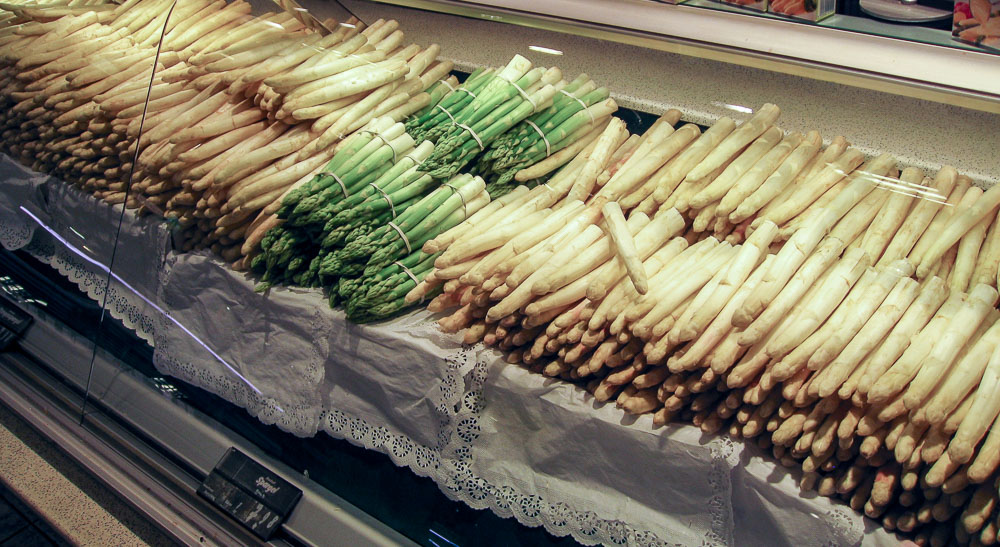
So, am I a convert to white asparagus?
Meh, I like it fine. My favorite thing about Spargelzeit is what it represents: a degree of connection to the land that I didn’t expect to find in a city as big as Berlin.
In the US, I feel like we’re only aware of what’s in season if we’re growing it ourselves or buying from local farmers. Although the cost of produce at a typical US grocer is certainly influenced by the seasons, thanks to globalization, we can get practically any food at practically any time of year.
To my knowledge, there isn’t really anything analogous to Spargelzeit in the US. In New England, apple season is the closest comparison I can think of, but, even then, it’s not so much apple season, as apple picking season. The traditions revolve around getting out of the city and visiting an orchard and eating apple cider doughnuts. New Englanders still eat apples all throughout the year, but fresh white asparagus is only available in Germany during Spargelzeit.
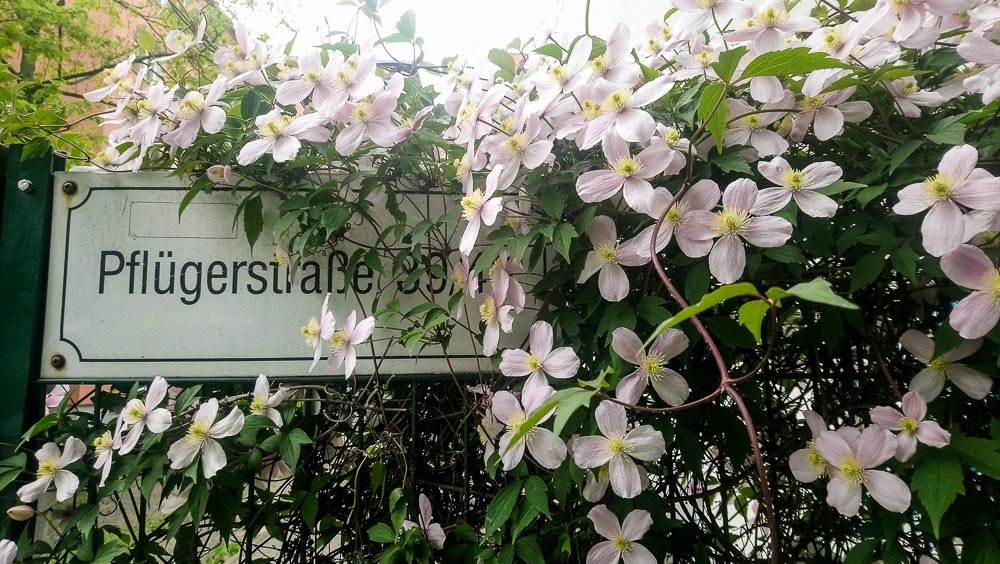
Spargel has been on my mind since late March.
That was when I saw several news articles about how coronavirus is affecting Spargelzeit. Many of the seasonal workers who harvest the asparagus are Romanian, but travel restrictions have kept them from crossing borders to do their jobs. Apparently, harvesting white asparagus is a bit complicated and, without experienced farmhands doing the work, availability is lower and prices are higher.
Some Romanian workers have made it to Germany in the last week, which means there should be more white asparagus around soon. That’s good news for spargel-lovers, but the situation is complicated. I invite you to read this Guardian article from last week about how Eastern European workers are being exploited by Western European markets.
There is often injustice underlying innocuous-seeming enjoyments like Spargelzeit. That being said, Spargelzeit still feels like harbinger of spring for me. Both of those things are true.
It’s not spring without Spargel!
I mean, obviously, it is still spring. But I’ve found that one of the joys of living in a place is familiarity with its quirks. We’re no longer surprised by Spargelzeit. We were expecting this odd German tradition, and so it’s sad to have those expectations upended.
After Spargel, the next food that’s visibly in season here is Erbeeren – strawberries. Stands pop up around the city (and across the country) selling local strawberries throughout the summer. What’s weird and notable about this is that the stands are typically shaped like a giant strawberry. A friend of ours calls it the strawberry mafia, but I imagine the mob will be much smaller this year. Did I shop at the Erbeeren stands? Not usually, but I’ll still miss them because they’re a part of the landscape that would be here if not for this pesky global pandemic.
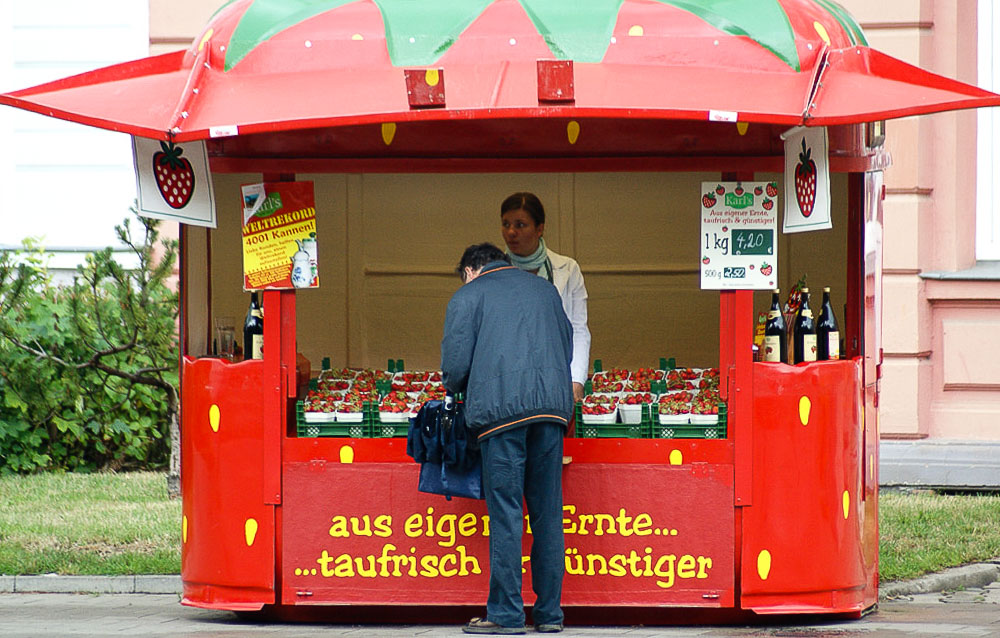
I’m being facetious, of course.
But, I do wish this were a “typical” spring. Especially with our friends Eben and Laura here, I wish I could show them the version of Berlin that I experienced last year and the year before. 2018 and 2019 were both beautiful – warm, sunny, and with such long days, perfect after the short, gray days of winter. 2020 has had similarly nice weather so far. On the other hand, snow storms in April followed by 75 degree weather is evidence of climate change and not really something to be celebrated.
And yet, as I keep reminding myself, multiple things can be true at the same time. Yes, this is an unprecedented and dangerous time and we need to do our best to take care of each other. And yes, it’s also disappointing to miss our favorite seasons and not be able to hug our friends and families. It’s okay to be upset about cancelled weddings or videochat birthday parties or missing the traditions of the places we live.
Not all suffering is equal, but we can still honor it as real.
I’m grateful for my health and my happy marriage and my internet access. And I wish the biergarten down the street were open and serving asparagus soup.





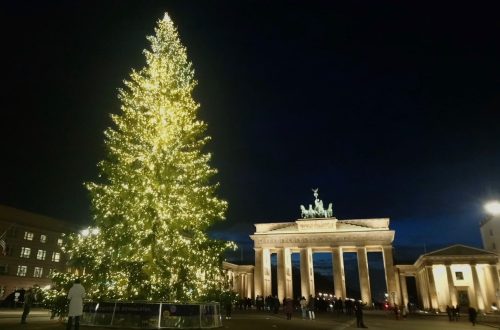

2 Comments
Laura Brown
I saw an Erdbeeren stand on the street today while on my way to the grocery! Right across from the Aldi near us. It was only the back of the truck, so I slowed and stared at the new addition (anything new feels fascinating), wondering what it was. If I wasn’t trying to keep my hands off my phone for virus-hygiene, I would have taken a photo to ask you later. And here you are explaining it to me. Thanks!
Great read. Always excited to see a new blog post. This one particularly got me square in the feels, especially at the end.
Pingback: